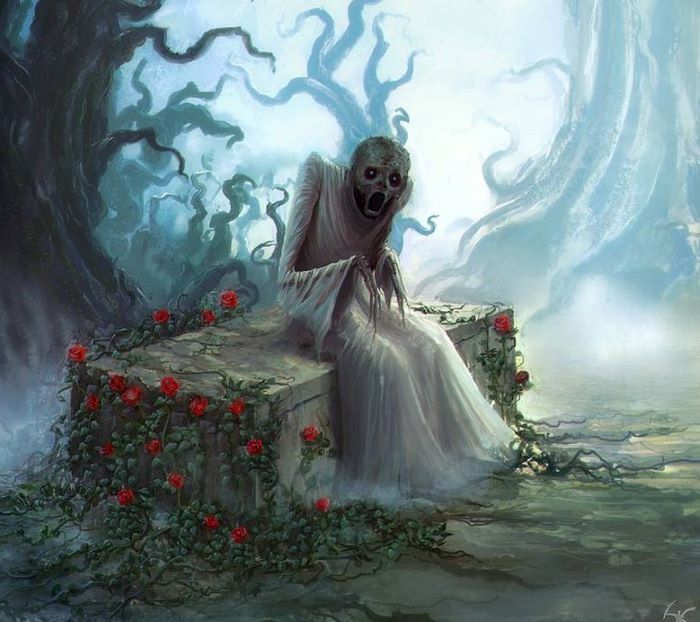VISUAL PROMPT
by Sans @ deviantart.com/Sanskarans

Write a halloween horror in less than 10 sentences.
What Will Happen To Me When You’re Gone?
Milton knew she was more loved than he.
For who else could know more about love for the lady than the man who had maimed and slain their neighbor’s daughter, Emily.
And though she suspected he’d had something horrible to do with the girl’s disappearance and their eternal aging, Annie had never asked—she was too frightened to know; better to carry on with Sunday slices of cake, and cups of tea above white satin.
But Milton had other plans for his secret, you see, they’d grown too late into age, and the witch had warned Milton that while he would never die, he could still be killed, of course, there had been another caveat too: his wife and he would continue to age in body, forced to watch their limbs turn to ash and bone, and feel their eyes shrivel within their skulls.
“Oh Milton,” Annie Lou cried, “You’re so much older than I am, what will happen to me when you’re gone?”
He slowly crossed the parlor to where she sat at the table, setting a fresh bouquet of roses down in front of her, his hand coming to rest over her shoulder as she wept.
Today, little children tell the tale of another immortal man with the face of Theodore J. Ives, said to have once lived beside Milton and the most cherished Annie Lou. One night he crept into their cottage by the forest, and the candles were blown black, the couple, never seen again.
They say sometimes you can see her ghost, sitting atop her husband’s coffin, and that roses only bloom in Vinebrooke whenever she’s near.
